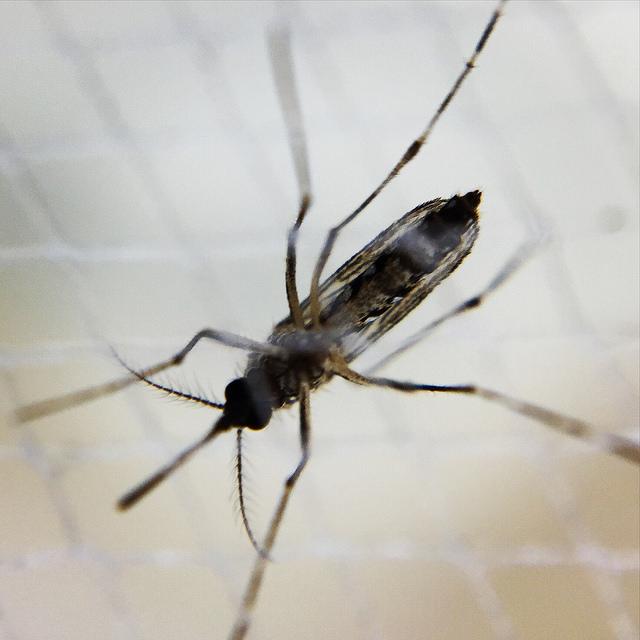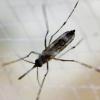In the latest Zika developments, Japan-based Takeda today announced the launch of a phase 1 trial of its Zika virus vaccine, and Chembio Diagnostics, based in New York City, said it has been awarded a contract from UNICEF for the purchase of its Zika point-of-care testing system.
Also, in the latest Zika research developments, one team built a case for exploring the potential link between the insecticide pyriproxyfen and microcephaly in Brazil, and another reported that some monkey species might harbor the virus in South America, possibly posing a lingering threat to people.
Takeda trial launches in US
The first human trial of Takeda's inactivated alum-adjuvanted vaccine (TAK-426) comes 15 months after it received a contract to develop it from the US Department of Health and Human Services (HHS) Biomedical Advanced Research and Development Authority (BARDA). It also comes about 2 months after Sanofi announced it was halting work on its Zika vaccine based on scaled-back federal funding.
The trial, designed to test the vaccine's safety and immunogenicity, will take place in 240 male and female adults ages 18 to 49 in US states and territories. Researchers will also test different dose levels to set the stage for the next level of studies.
Rajeev Venkayya, MD, president of Takeda's global vaccine business unit, said in a press release, "We are pleased to reach this important milestone, which reflects our commitment to addressing the Zika threat, as well as the significant capabilities of Takeda's global organization." He added that the progress wouldn't be possible without BARDA's ongoing support and collaboration.
Initial data from the trial are expected in 2018, and if phase 1 results are promising, Takeda said it would work toward starting phase 2 studies as soon as possible.
Rick Bright, PhD, BARDA's director, said in the statement that the agency remains committed to making safe and effective Zika vaccines available. "Takeda's Phase 1 clinical study is an important step toward this goal."
A steep drop in Zika cases has raised obstacles to testing new vaccines and treatments and prompted the US government to reshuffle its Zika-related projects to focus on a narrower set of goals and deliverables. Sanofi's vaccine was at the most advanced stage of development. About 20 different Zika vaccines are in earlier development stages.
Diagnostic test award worth up to $4.9 million
Meanwhile, Chembio said in a press release that the conditional long-term arrangement it received from UNICEF hinges on the company meeting certain conditions and extends through 2019. It includes the initial purchase of $1.5 million and possible additional purchases worth up to $3.4 million, totaling as much as $4.9 million.
The purchases are contingent on Chembio receiving an emergency use assessment and listing from the World Health Organization, completing clinical and analytical performance evaluation, and successful quality inspection.
UNICEF issued a request for proposal for point-of-care Zika testing diagnostics in February with the support of a $10 million advance purchase commitment from the US Agency for International Development (USAID), a program geared toward minimizing risk for companies that invest in the research and development of new products.
Chembio's hand-held testing system is designed to give a result in 15 minutes from a fingertip blood sample.
Building a case for insecticide-microcephaly probe
Careful research is needed to explore the role of the insecticide pyriproxyfen and neurodevelopmental disorders including microcephaly in Brazil's Zika outbreak, researchers from the New England Complex Systems Institute in Cambridge, Mass., wrote yesterday in PLoS Currents Outbreaks.
The insecticide's chemical properties make it a plausible contributor to the development of neurologic problems, and large-scale use in water supplies in parts of Brazil appeared to mirror the increase in microcephaly, they noted. "We believe this evidence is strong enough to warrant an immediate cessation of pyriproxyfen application to Brazilian water supplies until additional research can be carried out on its neurodevelopmental toxicity," the team said.
Possible monkey reservoir
In other Zika research developments, tests on monkeys to assess them as a possible sylvatic reservoir of the virus found that squirrel monkeys and owl monkeys experimentally infected with Zika developed viremia, but without detectable disease symptoms.
Reporting in the American Journal to Tropical Medicine and Hygiene yesterday, researchers said the susceptibility of the two primate species that live near people in South America suggests they could support a sylvatic Zika cycle there, which could stymie disease eradication efforts and pose a continuing threat to humans.
See also:
Nov 28 Takeda press release
Nov 28 Chembio press release
Sep 5 CIDRAP News story "Sanofi halts work on Zika vaccine amid federal funding cuts"
Nov 27 PLoS Curr report
Nov 27 Am J Trop Med Hyg abstract




















